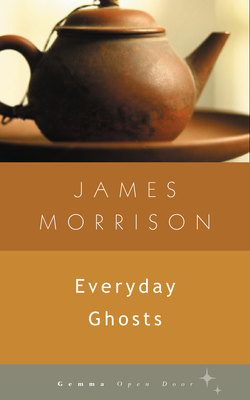Читать книгу Everyday Ghosts - James Morrison - Страница 9
На сайте Литреса книга снята с продажи.
5
ОглавлениеAs a boy, Pete thought his faith had saved him, but if anyone had asked what it saved him from, he would not have known how to answer. Nobody ever asked. He grew up in a mansion on a hill overlooking the bay. His father was often away on business and his mother was cheerful and vague. She was never without a smile even though most things appeared to puzzle her. Whenever she caught sight of Pete, she looked surprised. “Oh, there you are!” she would cry, as if she thought he’d been lost, even when he had been there all along.
Pete’s father called his banker every morning to find out how much money he had to spend that day. Then he spent it all before nightfall. By the time he was ten, Pete understood that not everyone lived this way. He knew it meant his parents were not true believers. Nobody was. If they were, they would sell what they had and give the money to the poor. If they were, they would not be hunched at mass like tired workers, murmuring under their breath. They would stand and sing.
The world would be a different place.
But the world was what it was. Pete had nothing to sell. None of it was his, and he was glad. He learned to live among the trappings of prosperity while always looking beyond to the true splendors of divinity. His father noted a certain absence about him. “Damn it, boy, where’s your head?” he yelled.
When Pete became an altar boy, his father told him to beware of the priests. “Don’t you ever let them get the better of you,” he said. Pete had no idea what he was talking about. The priests were less godly than Pete had hoped. They dozed off when they should have been mindful. Many were unkind. One of them always had a head cold. They were all very human. Everyone was. That was all they had going for them, and Pete was supposed to love them for it.
“That boy is just like his mother,” Pete heard his father telling his friends. “Always with his head in the clouds.” They decided to send him to a boarding school where religion was kept in the proper perspective. Maybe that would break him, his father said. Pete begged his mother not to send him. She only smiled and shook her head and turned away.
The feelings were already there by the time he left. It seemed they always had been. At school he met a boy named Michael who wore big glasses that gave him the look of an owl. Michael read philosophy and poetry and said it proved there was no other life than this one, and this one wasn’t all it was cracked up to be. They talked and played chess, together all the time. One afternoon Michael grabbed Pete by the arm and they fell across the chessboard, rolling on the scattered pieces. One way to worship, and to cast off selfishness, was in overwhelming love for another human being. Pete knew that. What scared him, apart from everything else, was that he had never felt more like himself before.
